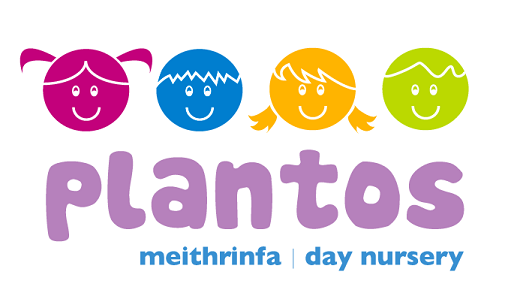
School nursery class explained
So you finally get your child settled into the perfect nursery. They make friends, they love the staff, it’s close to home and work, you feel confident that they’re happy. The situation couldn’t be better. But then they get a bit older and other parents start talking about pre-school and your mind turns to primary school. Now you have questions and a whole new dilemma.
- “What is nursery class in school?”
- “Does my child have to move now?”
- “How is school nursery class different to nursery?”
- “What do I need to do to make sure my child has the best start for school?”
There’s a lot of confusion around pre-school so below is a complete guide to what it is, why it matters, and why it might not be the upheaval you’re dreading.
Nursery class in school vs Plantos – everything you need to know
Attending school is compulsory for reception aged children and above (children aged 4-5). It is NOT compulsory to attend nursery class in school (children aged 3-4) which is the half day sessions that school offer.
Many primary schools offer a nursery class in school for children aged 3-4 years, and may suggest you move your child there before you make your reception year application. This is called “nursery class in school”. But is this right for your child? Let’s explore your options.
What’s the difference between Plantos and a nursery class in school?
Private nurseries such as Plantos and nursery classes in school both follow the same Foundation Phase framework which impact on the learning, development and care of children. However, there are differences.
Private nurseries like Plantos run their pre-school sessions based on the individual interests and needs of each child. The staff continuously observe each child and then offer educational activities that help them progress and succeed. We have observed your child’s development from their first day us at Plantos and you are more than welcome to see those records. We are presently working on putting them all onto the EyLog App too. We encourage you as parents to add your own observations and pictures too.
In contrast, nursery classes in schools follow topic-led teaching that might not be of interest to your child – and if they’re not interested, they’re less likely to get involved and enjoy learning.
What about funding and availability of childcare?
Private nurseries and schools both receive funding from the Childcare Offer for children aged 3-4. Private nurseries are currently awaiting guidance on the resumption of the Childcare Offer in September.
Schools often provide morning or afternoon sessions only – you won’t be able to pay for extra hours. So, if you work all day, you’ll need to find someone to pick your child up at lunchtime. We do provide wrap around at Plantos but your fees may not reduce depending on the times you require. It just means more moving around for your child and mixing in more than one bubble of children since Covid-19.
Schools also only offer pre-school childcare during term-time.
Private nurseries are flexible with timings – Plantos opens from 7.30am until 6pm every day, all year, so your child continues to receive outstanding care all year-round.
What about the adult to child ratio?
When children are aged 3 years, the guidance for schools is that there should be 1 adult to 8 children, however, because of budgets, it is more likely to be 1:10. Schools are not under a duty to adhere to the guidance on ratios. And class sizes are no more than 30 children at a time. Therefore, there could be a nursery class of 30 children with only 2 or 3 adults!
In many private nurseries, including Plantos, the ratio is 1 adult to every 8 children over the age of 3. This ratio must be adhered to as it is a requirement under the National Minimum Standards regulated by the Care Inspectorate for Wales. This gives your child a more personalised and nurturing experience.
But the school said my child needs to move now to make friends before they start reception class?
Have you ever been to a parent and toddler group (before Covid-19 obviously!) and by the time you leave, your little one is firm friends with another child? It doesn’t take long for children to build strong relationships.
Children are naturally friendly and curious – they will approach their peers and make friends with ease. Do not be put under pressure and made to feel guilty about keeping your child at a private nursery’s pre-school where they are already happy and confident there.
Will my child lose their place at the school if I don’t move them?
Simply, no. The school doesn’t make the decision about who is accepted into the reception year – that decision is made at the Local Authority level in either Cardiff or Newport depending on where you live. The process for reception is completely separate from the admission process for school nursery class.
There have been cases where a parent has moved their child to a pre-school (under pressure from the school to secure a reception place) only to discover that they don’t then get a place at that school.
Just because a child attends a school nursery doesn’t guarantee them a place at that school in the following year, so make the decision based on what’s best for your child.
What about having a key person?
At Plantos, your child will be paired with a qualified adult who they already know – someone they naturally connect and feel comfortable with.
At school, no such scheme is in place especially as class sizes are up to 30 children. At Plantos, we are presently limited to 16 children in our pre-school room which is much calmer and more nurturing.
So what are the benefits of my child staying at Plantos’ pre-school?
Your child is settled:
Settling your child into nursery is a stressful time for both of you – being able to drop them off at nursery and leave them smiling and waving is the biggest relief for a parent. So why put yourself and your child through the stress of an unnecessary move to school?
It also means that they do not need to attend more than one place during the day – so they reduce the risk of mixing in two different bubbles of children. This is especially important because of Welsh Assembly guidance since Covid-19 suggesting that a child should not attend more than one setting if possible.
It is also less unsettling than having to go from one place to another – continuity is important to each child. Change and transitioning can be difficult for all.
Nursery staff are fully qualified:
Plantos’ staff are fully qualified and experienced in ‘early years’ and understand the importance of the Foundation Phase ethos of learning through play.
Excellent resources:
Budgets are tight in primary education – not many schools have the money for extensive specific early years resources but instead share with the whole school. Plantos regularly invests in new age-appropriate equipment and resources to keep children entertained and challenged. We are fortunate to have large outdoor learning areas too unlike many other private nurseries.
Questions to ask before deciding between a nursery class in school and Plantos
- What is the staff to children ratio?
- Will my child get help going to the toilet if needed?
- What if a child has a toileting accident? Who will help them? How many staff will be left with the other children during that time?
- What early years qualifications and training do the staff have?
- Are staff trained in first aid?
- Does the nursery have a suitable environment, resources and equipment for three- and four-year-old children?
- How will be child cope with attending nursery class in school and Plantos on one day rather than just staying at Plantos for the whole day?
If your child is settled and happy at nursery, you don’t need to move them to a nursery class at a local primary school. They will receive good education and care from qualified staff in a suitable environment at Plantos’ pre-school.
Plantos employs qualified early years practitioners to help get children school-ready in its pre-school room, so they start reception class in school confident and happy. Listen to your instincts and go with your gut. Pre-school needn’t be an upheaval but a natural part of their early years education at nursery.

